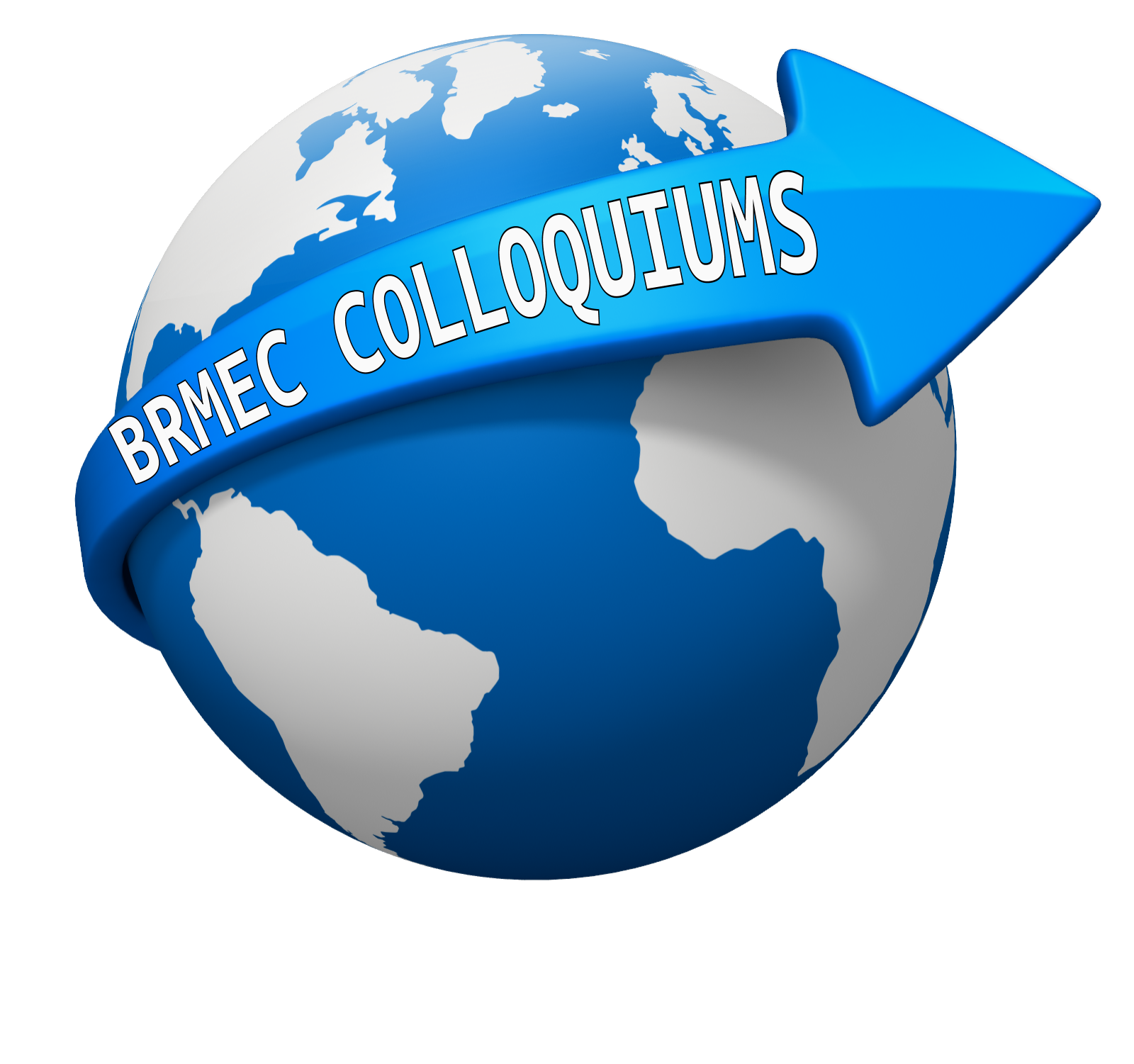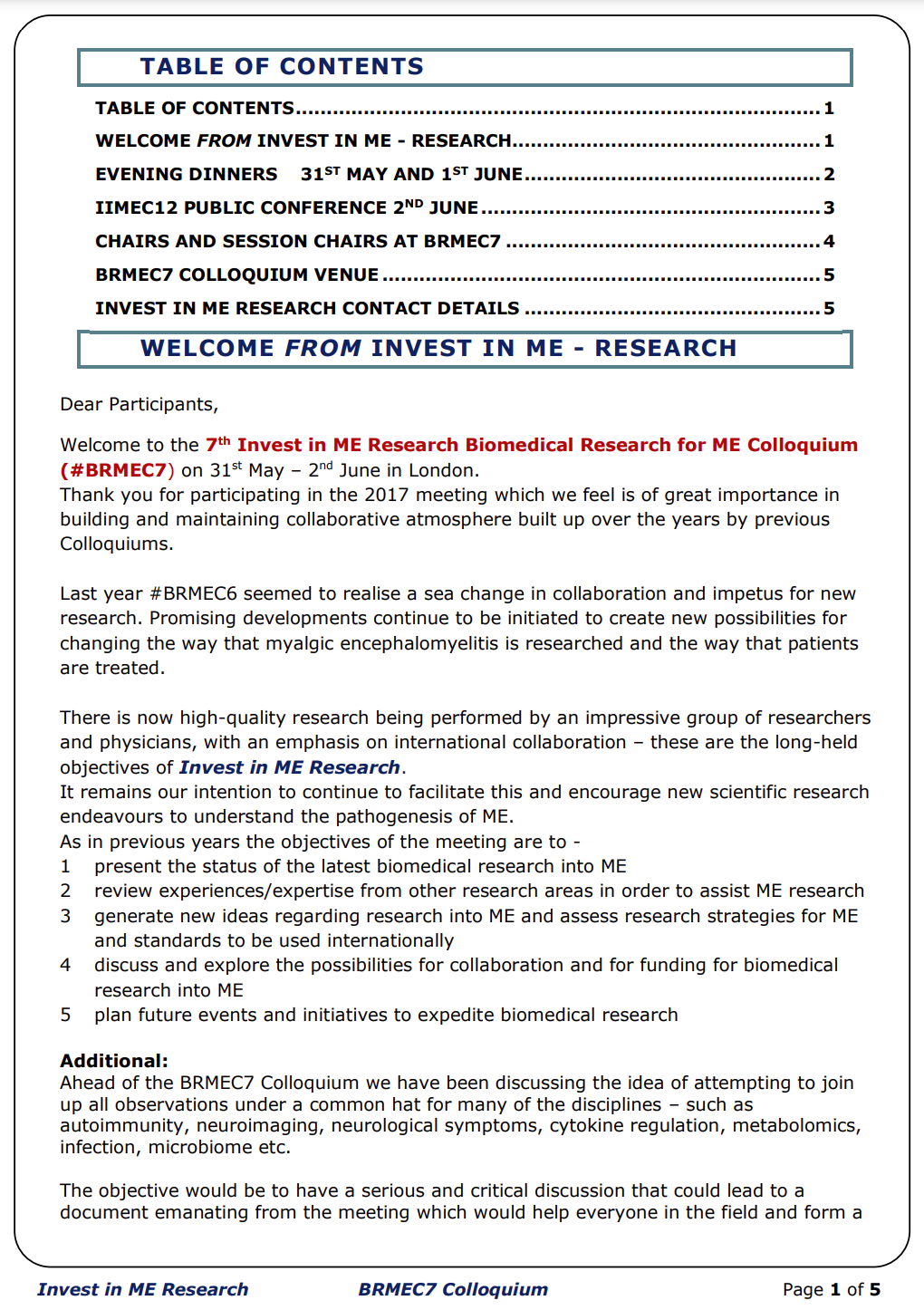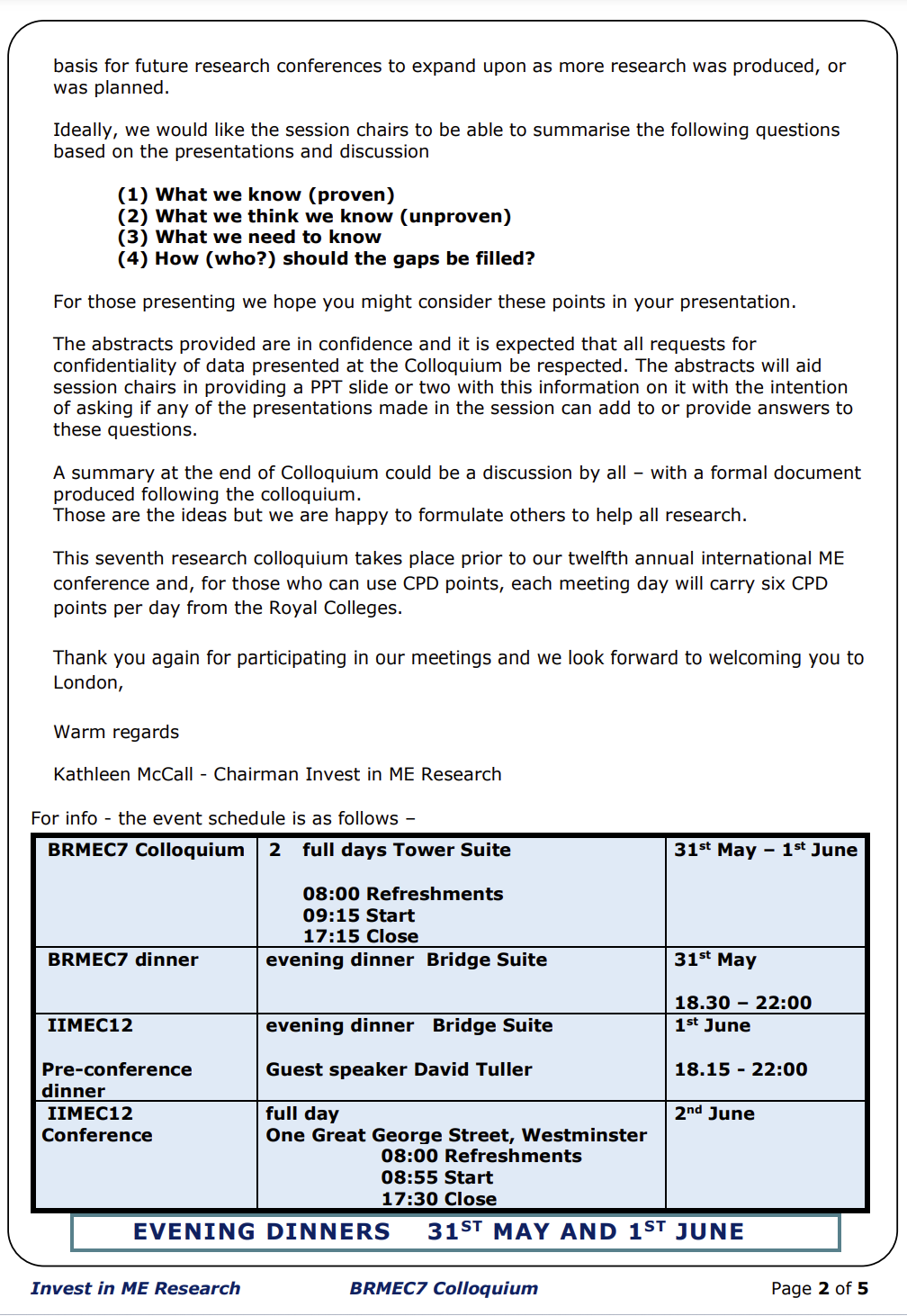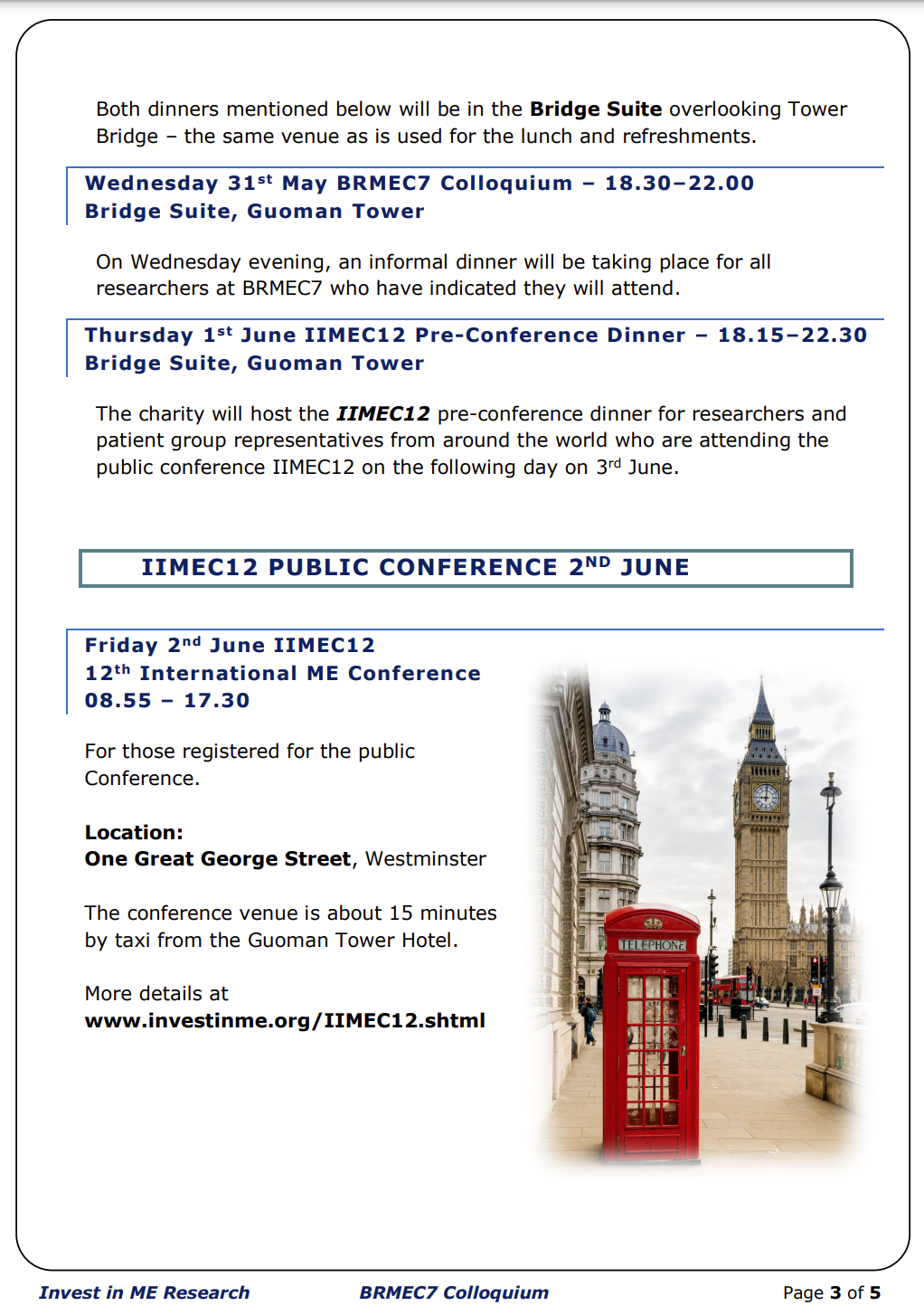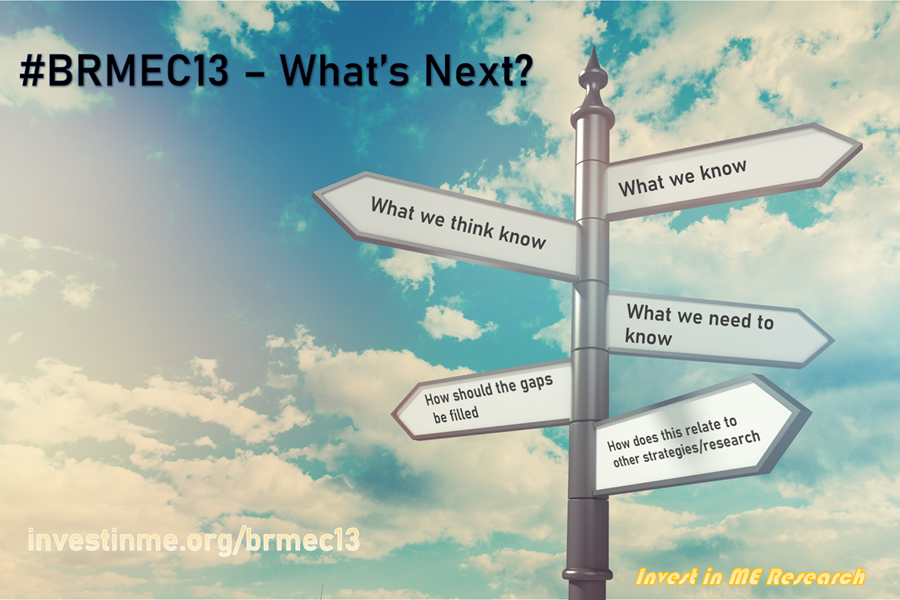13thInternational Biomedical Research into ME Colloquium 2024

From Knowledge to Action: Navigating the ME Research Frontier - What's Next?

The 13th International Biomedical Research into ME Colloquium takes place at the Wellcome Genome Campus, UK,
in June - #BRMEC13.
The BRMEC* Colloquiums are closed symposiums for researchers - where views can be openly expressed, data can be
shared in confidence (even if not publicly available) and collaborations can be developed.
The colloquiums began in 2011, with BRMEC1, as a way of bringing existing ME researchers together in the
same meeting
as researchers from other disciplines in order to increase knowledge and generate more avenues for research into ME.
This would also then facilitate the increase in capacity for research and
improve the chances of finding funding opportunities, raising more awareness of biomedical research into ME.
In 2017, for the BRMEC7 Colloquium, we sent a request in the Welcome document to
session chairs with a new approach
for structuring the presentations in their sessions. The idea was to focus more effort in
determining the information that was relevant to making progress.
The session chairs were tasked with by asking presenters to consider the following
questions that had been created by
Professors Tom Wileman and Simon Carding -
How does this relate to other strategies/research
We repeated this in later colloquiums, including the BRMEC10 colloquium of 2021, where the colloquium
introduced six hypotheses about ME for discussion [BRMEC10].
We were pleased to see that the NIH Roadmap of webinars during 2023 had adopted these
same questions to use for structuring their webinars.
As the NIH roadmap provides a summary of a large area of ME research then we
will use them for structuring our Colloquium of 2024, and pose the
natural follow on question - What's Next?'
This directly led to the initiation in London in 2015 of The European ME Research Group (EMERG)
concept
- that created a network of European biomedical
research collaboration to facilitate rapid advances in research and funding for ME.
More details here.
The colloquiums may not have had as much publicity as the public conferences but they have been crucial for developing research into ME and have expanded in numbers of participants and objectives over those years.
This all enhances progress in ME research and awareness, facilitates collaboration and new ideas and develops capacity in the research area.
 The NIH will be completing their webinars for their roadmap and reporting just before the Colloquium.
The NIH will be completing their webinars for their roadmap and reporting just before the Colloquium.
Working with NIH and European ME Research Group colleagues we will be supporting
the outcomes by using the BRMEC13 Colloquium in 2024 to determine how we can build on this work.
For a small charity these events have taken a great deal of time, effort and resources to organise and perform - but we feel they are very much worth the effort. They have been responsible for multiple projects, initiatives and momentum - not all directly related to IiMER's work - but very useful for other groups.
ME, and more recently Long Covid, place a huge burden in
healthcare yet the capacity of research has continually been restricted by limited funding.
The annual BRMEC* Colloquium
aids in utilising the research expertise that does exist to
improve understanding, collaboration and cooperation.
The knowledge and the road travelled by ME researchers and clinicians is also an invaluable aid for understanding long Covid.
Understanding the viral and immunological mechanisms behind both of those conditions is crucial to making progress.
Meanwhile we will be opening the possibility of submitting abstracts for consideration - the link is here
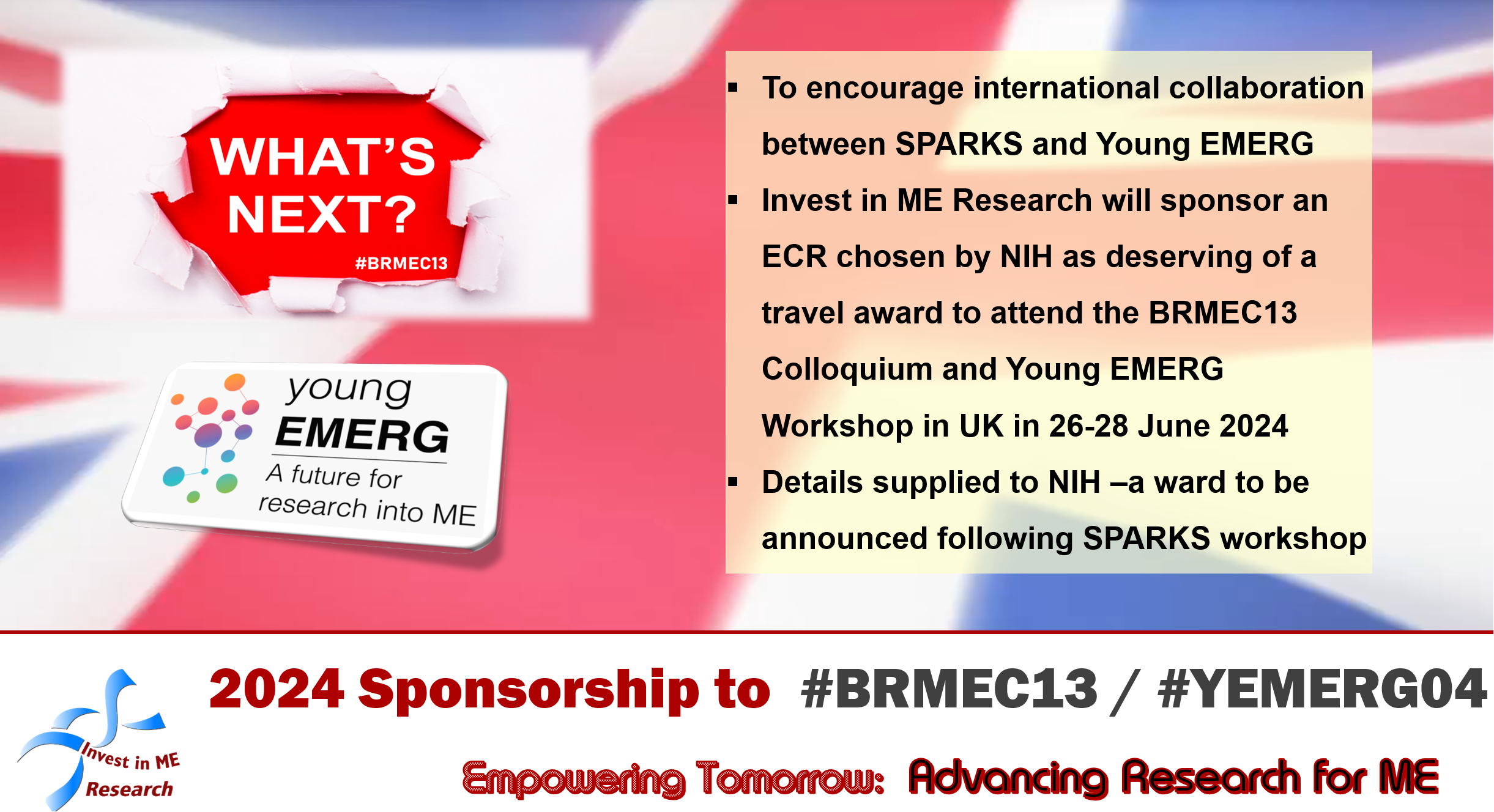 The charity will also be arranging the next Young EMERG workshop for early career researchers.
The charity will also be arranging the next Young EMERG workshop for early career researchers.
To foster collaboration between the Young EMERG European network and USA peers the charity
has agreed with NIH to sponsor a USA young/early career researcher to the workshop (and Colloquium)
- more details here


